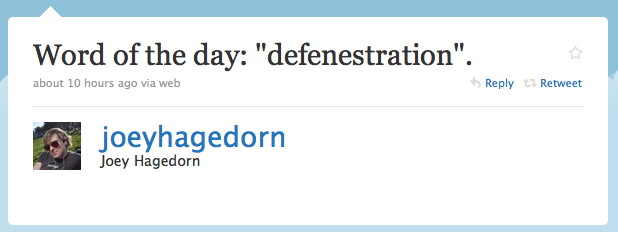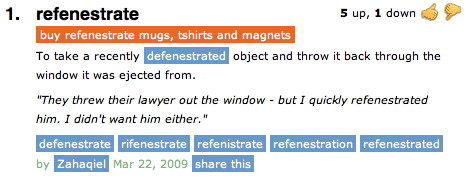While no one can take away from Russell T. Davies his accomplishment of getting Doctor Who back on the air, by the end of his 5-year run I found the style of the show under his reign had worn thin; indeed, I liked each season less than the one before. Some of this was because Christopher Eccleston’s performance in the first season was so much better than David Tennant’s (nothing against Tennant, just that Eccleston was a supernova in the role), but mostly I found the stories were getting less sensical and more saccharine, and I was pretty sick of the Daleks and the over-the-top and ever-more-ludicrous season-ending two-parters.
As the new producer, Steven Moffatt, had written many of the very best episodes under Davies, I had high hopes for his first season. But the end result was… not quite what I’d hoped for. While Moffat wrote six episodes in the season, none of them were as good as the best ones he’d written during the Davies run, and while the season overall was more consistent than the last few Davies seasons, there were still several clunkers.
Here’s my ranking of this season’s episodes from favorite to least:
- The Pandorica Opens/The Big Bang (written by Steven Moffat)
- The Time of Angels/Flesh and Stone (Moffat)
- Amy’s Choice (Simon Nye)
- The Beast Below (Moffat)
- The Lodger (Gareth Roberts)
- The Hungry Earth/Cold Blood (Chris Chibnall)
- The Eleventh Hour (Moffat)
- Vincent and the Doctor (Richard Curtis)
- The Vampires of Venice (Toby Whithouse)
- Victory of the Daleks (Mark Gatiss)
If you haven’t seen the season, be warned that there are spoilers ahead in my review.
The biggest change, of course, is that we have a new Doctor in Matt Smith, and a new companion in Amy Pond (Karen Gillan). The best feature of the new stars is their relationship, as it’s established from the first episode that Amy is fascinated by (and infatuated with) the Doctor, but she also feels betrayed by him because she feels he broke a promise to her when she was a girl to take him with her. (Of course, it was just that darned unreliable TARDIS bringing him back 12 years later, but she doesn’t really change things for her.) Amy’s sorting out of her feelings for the Doctor and for her fiancé, Rory Williams (Arthur Darvill), is a big part of the season’s story arc; it’s basically her coming-of-age story.
Matt Smith is fine as the Doctor, but he didn’t blow me away. Indeed, I was disappointed for the first few episodes that he seemed to just be channeling David Tennant, that his Doctor wasn’t a significant departure from his predecessor (this might be a first for the franchise, which previously has usually made an effort to make the break between Doctors clear and even extreme). At times it seemed like he was Tennant’s Doctor in Peter Davison‘s body wearing Patrick Troughton‘s clothing. Fortunately, he grew on me as time went on, but I’m still hard-pressed to say how his Doctor is materially different from Tennant’s. I think Smith brings a little more empathy to the role: His Doctor is a more sympathetic figure, and that makes those moments when he seems to betray his companions (whether inadvertently or as part of some larger plan) seem all the more emotionally wrenching. But I think Smith makes the Doctor earn the benefit of the doubt more than Tennant did (Tennant’s Doctor often seemed callous to me, putting on his “gosh that’s too bad” face in reaction to other peoples’ troubles; consequently I didn’t have much sympathy for his whining in “The End of Time” when his time was up).
Karen Gillan pulls off the nuances of Amy’s character quite well, excited about traveling with the Doctor, challenging him on some of his stranger behavior, and being stuck between him and Rory (by the way, Arthur Darvill doesn’t get a lot of different stuff to do playing Rory, but absolutely nails it when he does get a chance to show some range, such as in “The Big Bang”). She’s a strong character, though I noticed that she’s another in a line of female companions who seem at dead ends in their lives before they head off with the Doctor: Sure, Martha Jones was an exception, and Sarah Jane Smith is the most prominent professional-woman companion, but Rose was a young woman working in retail and seemingly without direction in her life, Donna was unemployed, and now Amy does “kiss-o-grams”; not really distinguished backgrounds. But to be fair, Amy has the mitigating factor that her life has been turned upside-down by the crack in time and space in her bedroom wall. One could argue that a wandering adventurer like the Doctor is more likely to attract companions at loose ends or without direction, looking for someone like him to give their lives meaning. That certainly seems to be the case for Amy.
The unifying story element of the cracks – as with the running threads in past seasons – is handled a bit awkwardly, with the cracks showing up in various episodes to no real effect other than foreshadowing of the season’s finale. (“Bad Wolf” in season one was basically the same.) The exception is in “Flesh and Stone” when the Doctor uses a crack to deal with the weeping angels, but otherwise they’re more ominous than actually relevant. Then again, the season ends with the “why” behind the cause of the cracks left unresolved, with the promise that it will be central to next season’s story, so if things get better from here, then the fact that the cracks were handled so cavalierly will happily be forgotten.
As far as the individual episodes go, the season contained several pedestrian stories: “Victory of the Daleks” is one of the weakest Dalek stories I can recall, with a ridiculous climax involving World War II airplanes in space. I wonder whether this story played better to a British audience who might feel a more visceral excitement in this sort of recreation of the Battle of Britain, but absent that it’s just a bad episode. “Vincent and the Doctor” is a worse-than-average monster story which is not quite redeemed by the coda where Vincent Van Gogh (nicely played by Tony Curran) glimpses his future. One assumes writer Richard Curtis is a huge Van Gogh fan, since the story has no reason to exist otherwise. “The Vampires of Venice” is a similarly weak monster yarn. And “The Eleventh Hour” is only notable for its nifty set-up of the Doctor/Amy relationship, but the threats (Prisoner Zero and the ridiculous-looking Atraxi) are by-the-numbers.
In the middle of the season’s quality range, there’s the two-parter “The Hungry Earth/In Cold Blood”, which is a bit better than the average monster story (although not nearly as terrifying as the Fifth Doctor story “Frontios”, which also involved people being pulled into the Earth), and brings back the Silurians in (I think) the form of yet another subspecies of this prehistoric reptilian race. The most notable thing here is the absolutely gorgeous depiction of the Silurian city, which might be the single most impressive special effect and set design in the history of the show – really beautiful. “The Lodger” is a more effective horror story, with the Doctor isolated from the TARDIS, renting a room in a flat in which mysterious things are happening, and getting to the bottom of it. Matt Smith gets to play soccer and there’s an entertaining love story among the supporting cast, but the ending was a little disappointing, since the cause of the mysterious happenings felt a little too quickly examined; I’d have appreciated more depth in the history of the thing. “The Beast Below” is a very traditional trapped-in-an-enclosed-space-with-danger-all-around story, except that Moffat turns the premise on its ear by making things be not what they seem, and using it as a means for Amy to demonstrate her worth to the Doctor. It doesn’t quite hit on all cylinders, but it’s pretty good.
Then there’s the best of the season: “Amy’s Choice” and the pair of two-parters written by Moffat. “Amy’s Choice” is a fine suspense piece, cleverly taking place at two different points in our heroes’ timeline, and presenting a difficult puzzle for them to figure out, plus bringing resolution Amy’s conflicting emotions about the two men in her life. “The Time of Angels/Flesh and Stone” brings back River Song (Alex Kingston, who has plenty of screen presence to stand as an equal to the Doctor) and the weeping angels. While I think Moffat plays fast and loose with the nature of the angels (it seems much easier to keep them at bay here than in “Blink”), I liked some of the new characteristics that he added to them (“that which holds the image of an angel becomes an angel”, resulting in the tensest scene of the season), and there were quite a few nifty last-minute escapes. Despite this, the story seems overlong, the military crew who show up to deal with the angels don’t seem very competent or prepared, and overall the story has more style than substance. While still quite a good story, it felt disappointing given its heritage in previous great Moffat-penned episodes.
Moffat saved the best for last, in the season’s finale, “The Pandorica Opens/The Big Bang”, in which River returns to help the Doctor solve the mystery of the Pandorica (which turns out to be a pretty neat idea), and then to help the Doctor and Amy save the universe. “The Big Bang” has one of the best opening sequences of any Doctor Who episode ever, and despite the solution relying on a time paradox, it’s a highly entertaining romp, with the denouement at Amy and Rory’s wedding being great fun. Yes, the Doctor saves the Earth and the universe again, but Moffat brings more gravitas and humanity to the event than Davies did in his season-enders. And yet… I still wish the series would veer away from having to end every season with a big bang (literally, in this case). Honestly when the stakes are this high, you just can’t keep topping yourself every season – it just doesn’t work. It only works here because Moffat is a flat-out better writer than Davies (and Davies certainly didn’t pull it off season after season in his run), and maybe Moffat can pull it off once more, but that’s probably the limit.
I want to make special mention of the season’s incidental music, composed by (I believe) Murray Gold, which is some of the most memorable of the series. I particularly enjoyed the themes he wrote for the Doctor and Amy, which key the final scene of “The Eleventh Hour” as well as the coda of “The Big Bang”. I hope the music gets released on an album, because I’d certainly buy it.
This has been a far longer review than I’d anticipated, which I guess speaks well of the season overall. Certainly I enjoyed it, even if there were a few clunkers along the way. But it did feel like it was struggling to throw off the weight of the immensely popular Tennant era, and having a hard time finding its own voice. It did set up the overall storyline for next season, which I hope will see further evolution and rise in quality.


